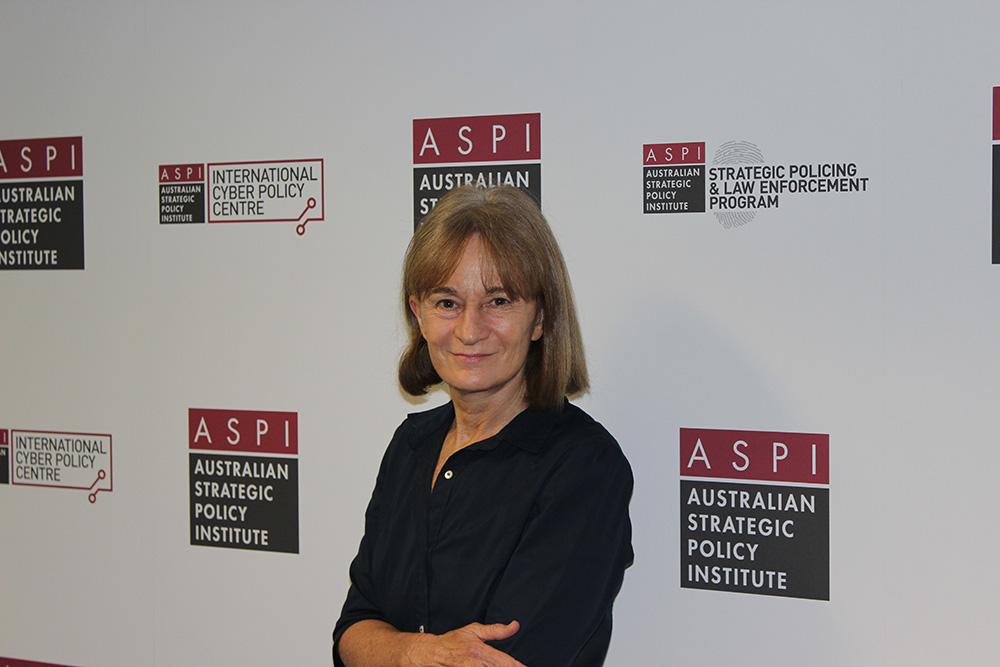The Strategist Six: Jane Perlez
Posted By The Editors on March 17, 2016 @ 14:30
 Welcome to The Strategist Six, a new feature that provides a glimpse into the thinking of prominent academics, government officials, military officers, reporters and interesting individuals from around the world.
Welcome to The Strategist Six, a new feature that provides a glimpse into the thinking of prominent academics, government officials, military officers, reporters and interesting individuals from around the world.
1. You’ve been following China’s rise for well over a decade. Do you agree that Xi Jinping is the most powerful Chinese leader since Mao?
Well I think there’s little doubt that that’s the case, although China is a very different country today to the one Mao ruled. I was actually there in 1967 at the height of the Cultural Revolution and China was coming apart at the seams—China really was nearly knocked to its knees by the Cultural Revolution, it was a poor and politically desperate country. China today has of course all the power that we see. There’s no doubt that as President, Xi Jinping has amassed a great amount of power. This is in part because of his pedigree as the son of one of the founders of the Revolution but also in large part because he is the most determined Chinese leader we have seen since Mao, who seems determined to recoup what he believes is China’s rightful place in the world.
2. What is the biggest threat you see to Xi Jinping and the CCP’s political legitimacy?
Well maybe I’m a minority on this among Western observers, but I think their legitimacy is probably fairly sound right now. However, if they can’t deliver on the economy and the middle class stops growing, then I think they are in big political trouble. But it seems we’re a little way from that, and those in charge are smart economic managers, so they will do all they can to keep the internal economy going so that people will continue to be able to buy things and keep living the consumer driven lives that they’ve never had before in China. This is very important, we’re used to a consumer driven society but they’re not, and they’re enjoying it and they’re just at the start of it. So if the Chinese leadership can keep the economy going, I think they’ll be okay for a while. Of course how long that while is, is the burning question.
3. We are seeing growing strategic competition between the US and China in the Western Pacific. How do you see this relationship playing out in the coming years?
A lot depends on what goes on domestically in China and what goes on domestically in the United States. The US isn’t in any great shape politically either, although economically it may be in better shape than some people say. But if Donald Trump becomes President of the US, then all bets are off. But if we have a more normal trajectory and Hillary Clinton is President, and China is led by Xi Jinping until at least 2021/22, I do think that while we’ll see some head-to-head clashes and differences, we’ll just have to see whether there are provocations that produce some kind of unforeseen conflict that could really set the relationship back. I think it’s going to be tough for the US to hang on to its big power in the Western Pacific, so I side a little bit with Hugh White on this one.
4.China is steadily asserting its sovereignty over the South China Sea. Do you believe that China will respect decisions by the Permanent Court of Arbitration on competing sovereignty claims with the Philippines?
No way. The Chinese have made it perfectly clear they’re not going to recognise the decisions of the Court, but I do think that if—as in all likelihood—the Court decides mostly in the favour of the Philippines, that’s going to be a big setback for China in the court of world opinion. Now, how well the Chinese are preparing themselves for that, it’s hard to tell. But that’s coming in a few months, and it’ll be interesting to see how they’ll deal with it. China will continue to push on the hard ware front and perhaps even declare an ADIZ of the Paracels, so they’ll try and drown out the gains made by the Philippines.
5. China’s is Australia’s biggest trading partner, and the US is our closest ally. How do you think that we can reconcile our strategic relations given the very different world views from Beijing and Washington?
Well I think the sale of the Port operations in Darwin is an interesting case in point. This clearly showed that economics trumps strategy, or put it this way, that economics was allowed to trump Australia’s strategic interests. Personally, I think it was a baffling decision and what’s quite extraordinary to outsiders is that the Australian system is set up in such a way that an underpowered, underfunded insignificant little government in the Northern Territory could make such a big and significant decision. That’s the extraordinary thing about it. On the larger question, the recent Defence White Paper shows that Australians are going to stick with their ally the US, a wise decision. However, if China becomes the dominant investor in Australia I think there’s something to worry about because China wants this part of the world to be its sphere of influence and Australia has to watch very carefully that it doesn’t become too much part of that sphere of influence.
6. What do you think is the most significant threat to global security currently?
Donald Trump.
Article printed from The Strategist: https://aspistrategist.ru
URL to article: /the-strategist-six-jane-perlez/
Click here to print.